Few moments captured the volatility of transatlantic relations better than the explosive Oval Office meeting between Donald Trump and Volodymyr Zelenskyy on 28 February 2025. Sebastian Jäckle, Ronald Schleehauf, Judith Reinbold and Marius Fröhle studied its impact on German public opinion using a natural experiment based on an online survey
Can high profile ‘moments’ in the world’s media glare act as a catalyst for longer-term public attitudinal trends? By chance, we were able to test this in relation to Germans’ attitudes towards the United States. While we were running a large-scale survey among the German public (Feb/Mar 2025, ~8,600 respondents), there occurred the tempestuous Oval Office Meeting (OOM) between Trump and Zelenskyy. Their showdown allowed us to test short-term attitudinal reactions to this – what we call – 'Trump treatment', by means of a natural experiment.
Our new study also compares these short-term reactions with longer-term developments since the end of 2023 (from Biden's presidency to the second Trump administration), when we conducted a similar survey (~8,900 respondents).
We find that even before the OOM, the image of the US in Germany was deteriorating. Favourability toward the US dropped considerably between the first survey wave in 2023 and the second one that followed Trump’s return to office in January 2025.
Most Germans no longer see the US as a strong advocate of democracy and a defender of freedom and human rights. In particular, they no longer feel that Germany can rely on the US when it matters. Trust in its reliability as an ally plummeted, especially among supporters of the mainstream Christian Democrats (CDU/CSU), Social Democrats (SPD), and Green party.
Germans no longer see the US as a strong advocate of democracy, and do not feel that that Germany could rely on the US when it matters
Only the populist far-right Alternative für Deutschland (AfD) bucked this trend. Traditionally anti-US, its supporters shifted sharply toward a pro-Trump stance following his election, making AfD one of the most pro-US parties in the contemporary German landscape. This development may indicate that foreign and defence policy issues are now also entering the realm of right-wing populist culture wars. This is a dynamic that has, until recently, remained largely absent from German debates on foreign policy.

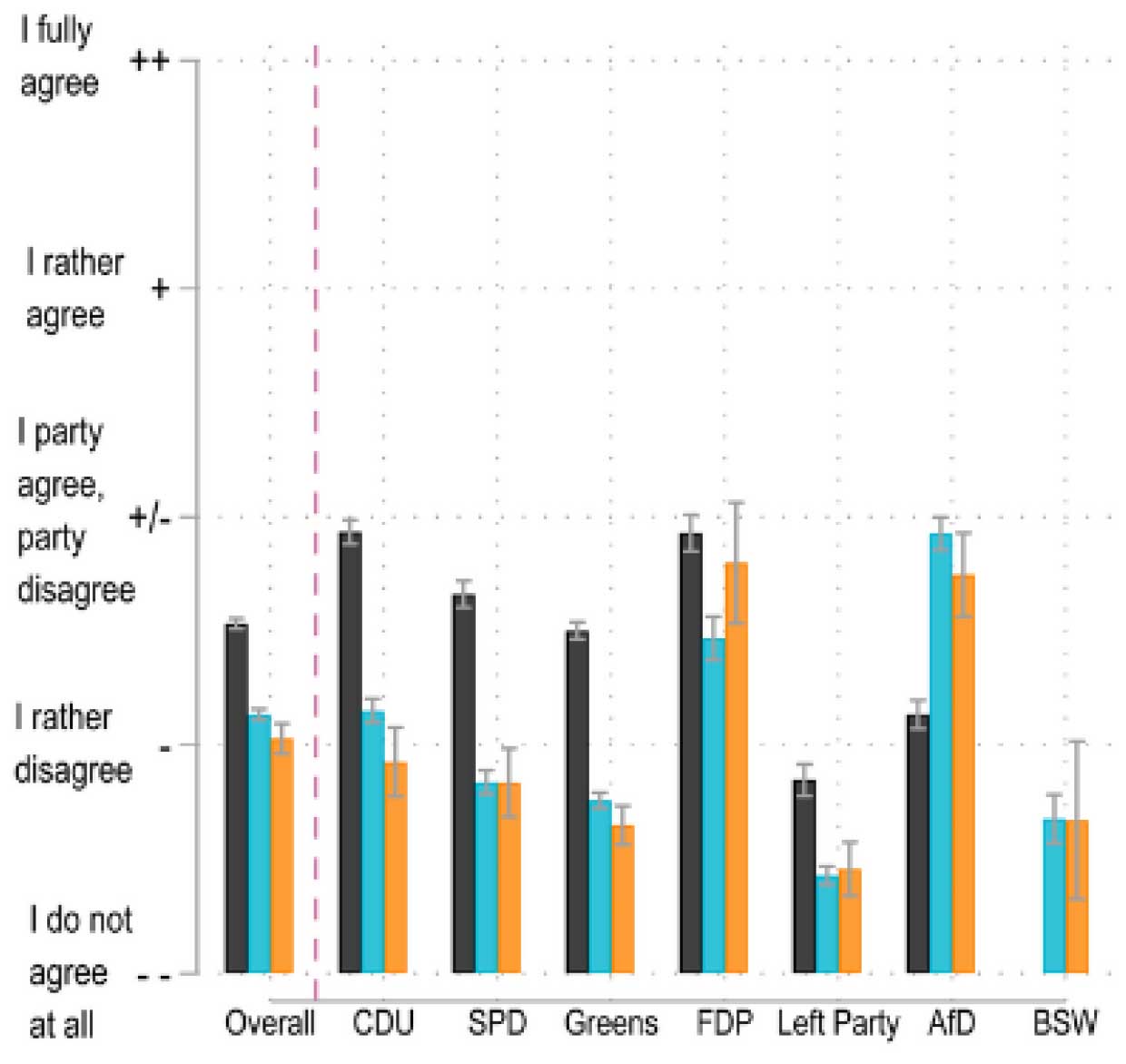
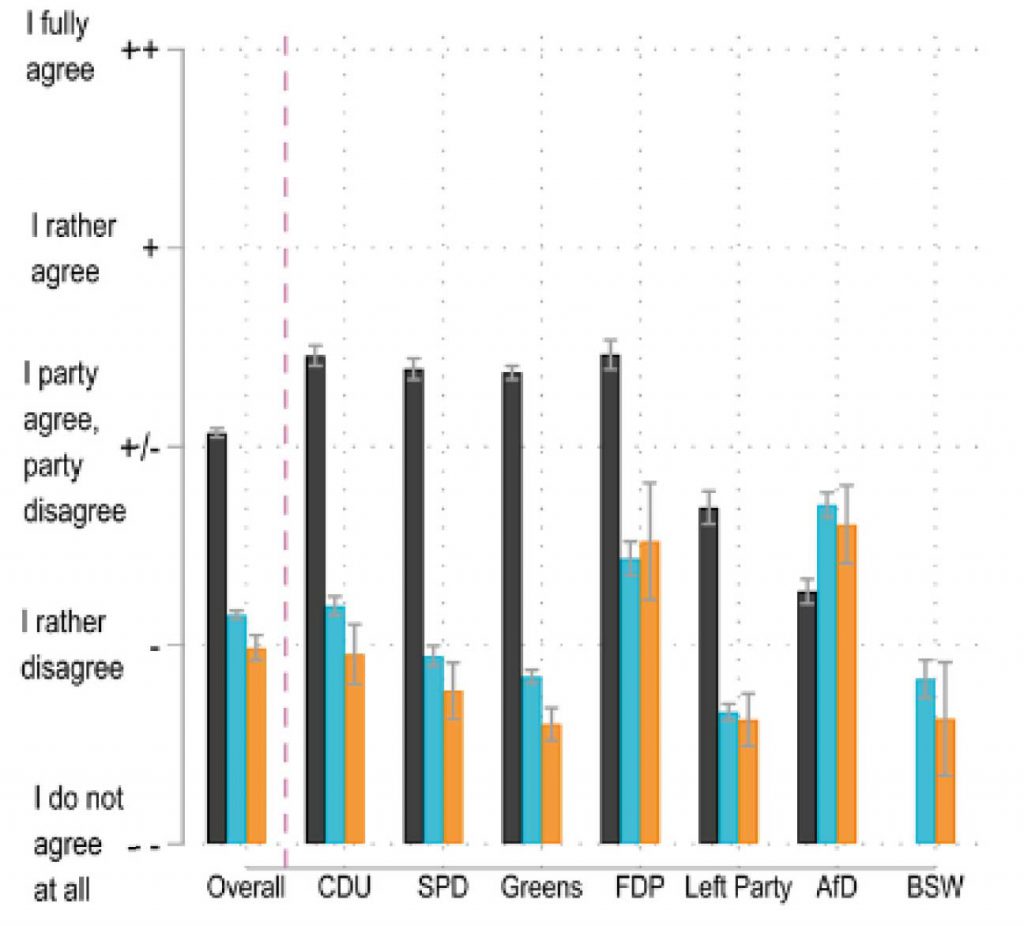
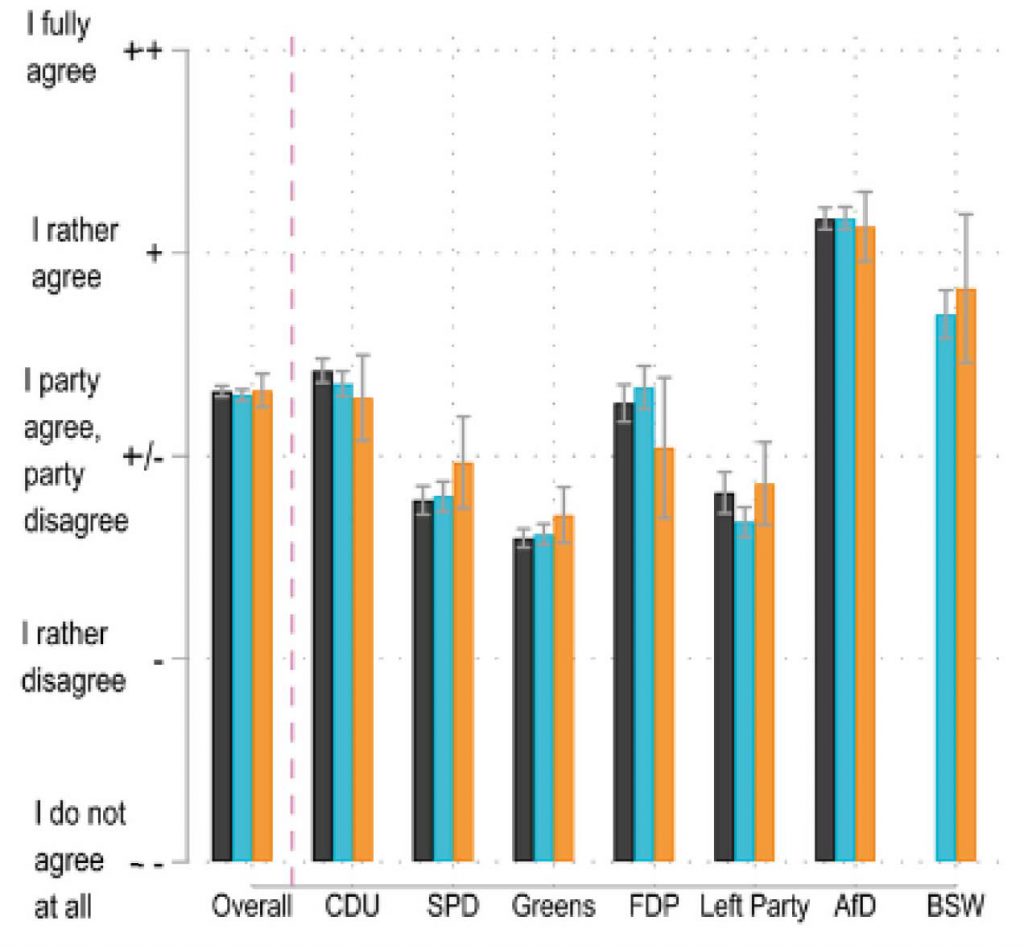
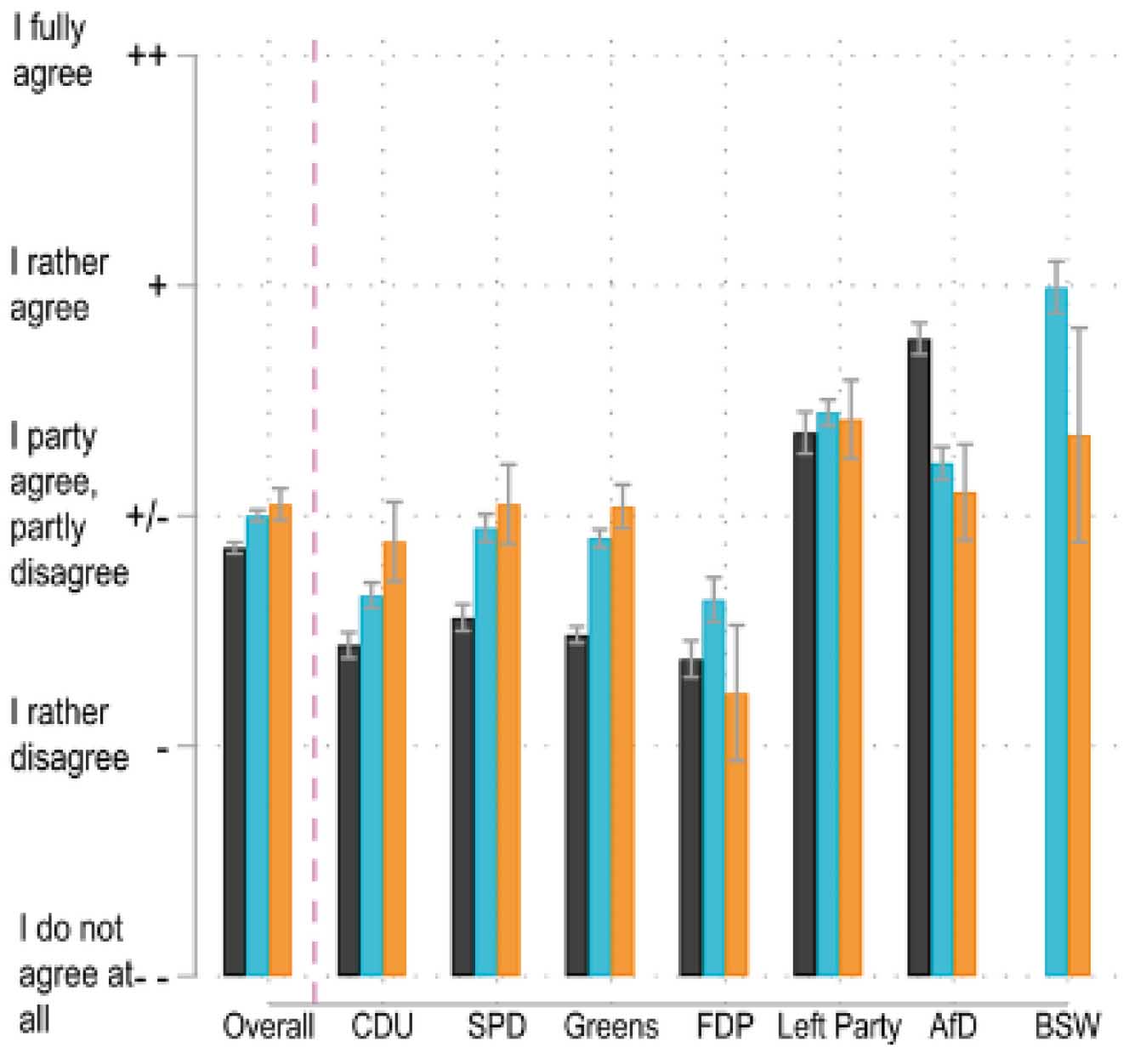
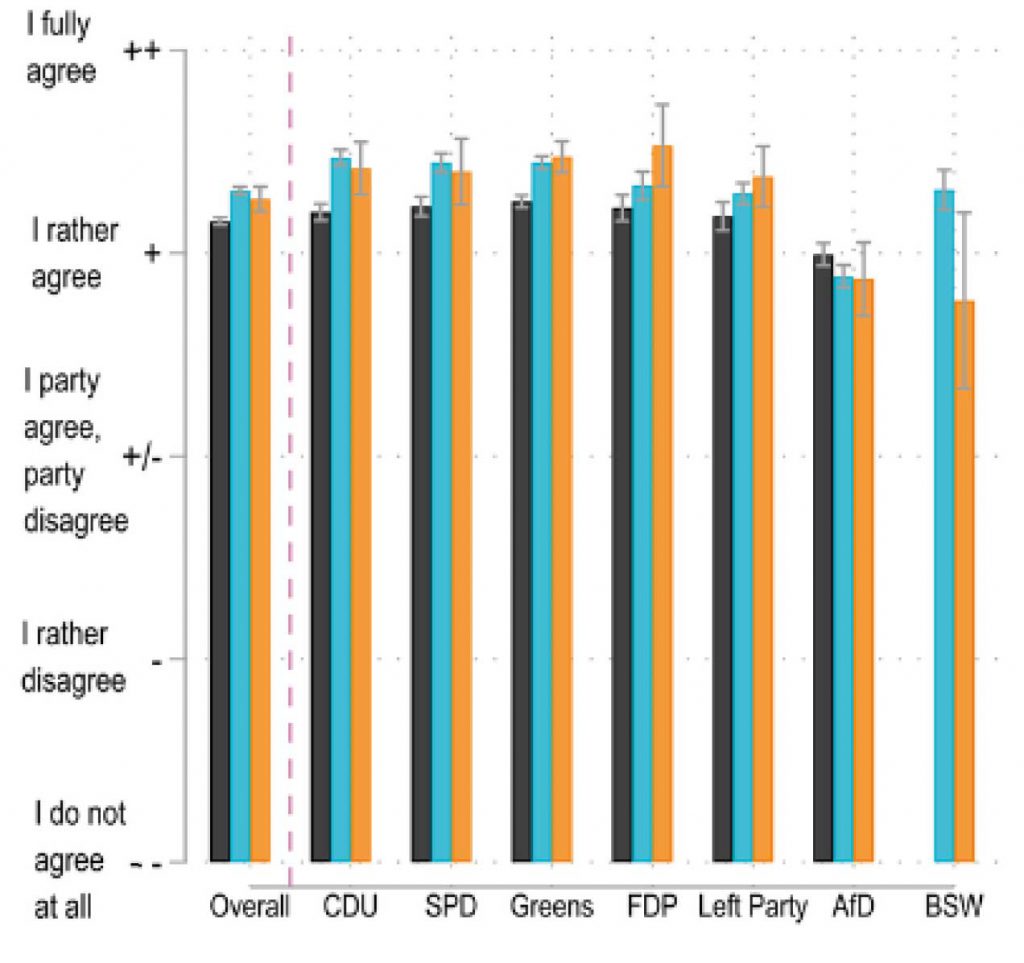
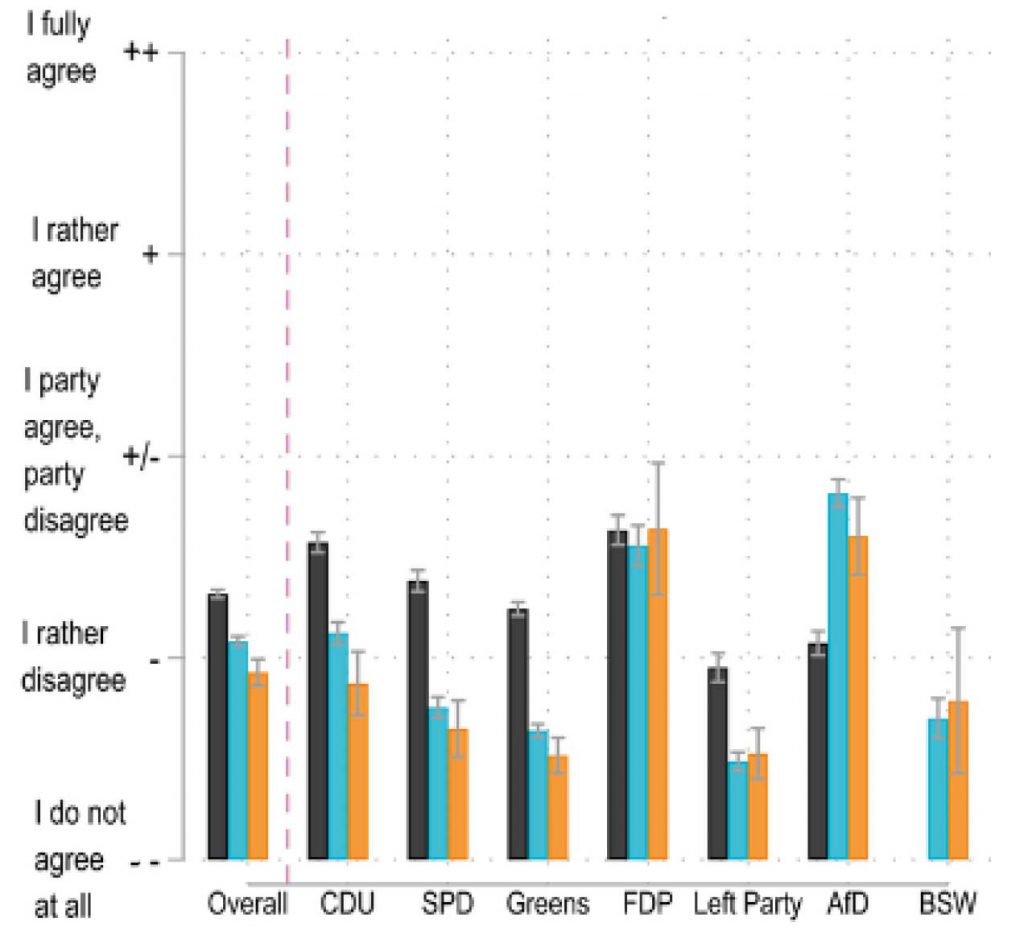
The OOM offered a natural experiment. In the second survey wave, 7,720 participants answered the questionnaire during the four days leading up to the OOM, and 885 in the two days after it. Comparing these two groups via an Unexpected Event during Survey Design allows us to isolate the immediate effects of the Trump treatment.
Three key results stand out:
Our survey also revealed that US and EU perceptions became increasingly opposed. Before the OOM, Germans who held positive views of the EU tended to be somewhat sceptical of the US. After the meeting, that negative correlation grew stronger – being pro-EU increasingly meant being anti-US.
Since the Oval Office meeting, Germans who are pro-EU have grown increasingly anti-US
This suggests a deeper transformation: not just attitude shifts toward specific policies, but a reorganisation of belief systems. Many Germans no longer see the US and Europe as complementary partners – but as alternatives.
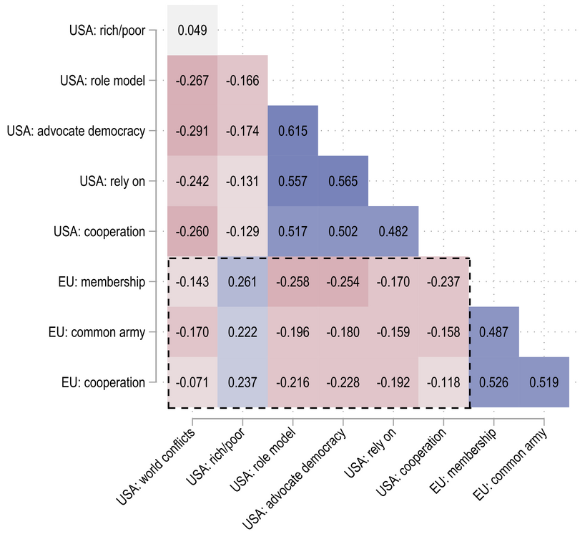
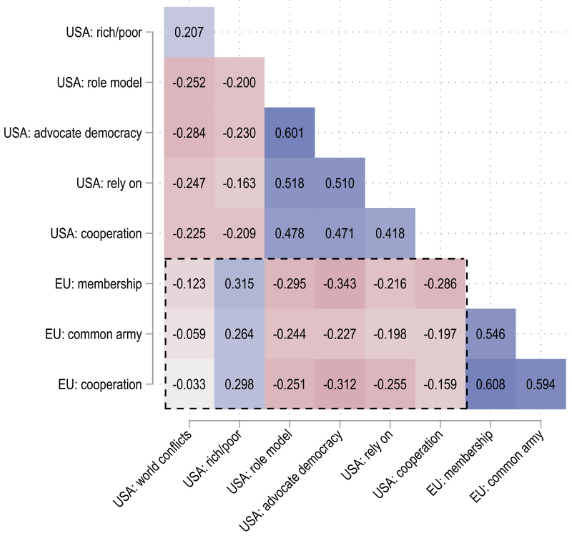
Dashed box: correlations between US- and EU-attitudes. USA: rich/poor = Differences between rich and poor are more pronounced in the USA than in Germany; role model = The USA is still a role model for Germany; advocate democracy = No other country is such a strong advocate of democracy and defender of freedom and human rights as the USA; rely on = Germany can rely on the USA when it matters; cooperation = Germany should work closer together with the USA; EU: membership = EU membership brings more advantages than disadvantages for Germany; common army = Germany should advocate a common European army; cooperation = Germany should work closer together with European countries.
The data point to several significant consequences:
Former German chancellor Olaf Scholz (SPD) coined the term Zeitenwende (literally: 'times turn') after Russia’s full-scale invasion of Ukraine in 2022. Yet while Russia's war did indeed reshape German defence policy, it left broader public attitudes surprisingly unchanged. We argue that a second Zeitenwende, sparked by Trump’s return and his MAGA politics – and dramatised by the OOM – appears to be cutting deeper into the foundations of public opinion by heightening the state of alert created by Russia’s ongoing aggression.
German public opinion is fragmenting as centrist disillusionment, liberal exceptions and populist realignments all point toward a more volatile foreign policy environment
This shift is not absolute: Germans are not abandoning the US entirely. Nor are they uniting behind a clear European alternative. Instead, public opinion is fragmenting. Centrist disillusionment, liberal exceptions, and populist realignments all point toward a more volatile, less predictable foreign policy environment.
The Trump-Zelenskyy showdown reveals how a single event can crystallise underlying trends. While the OOM did not create anti-US sentiment, it accelerated and reinforced what Trump’s MAGA politics started. Clearly, German public opinion has entered a new phase of scepticism toward the US.